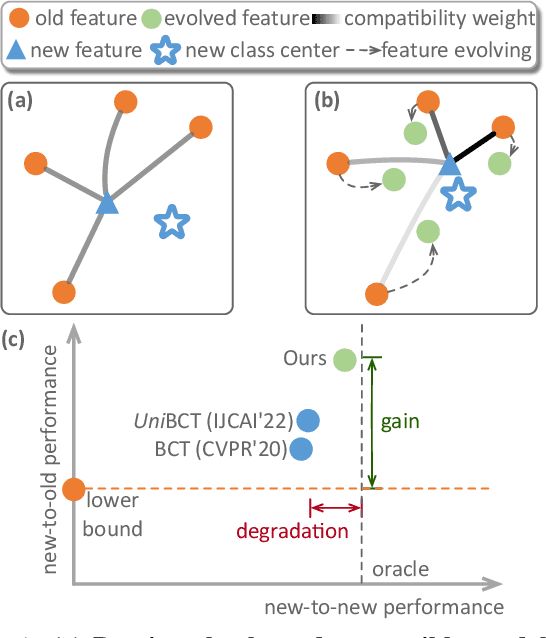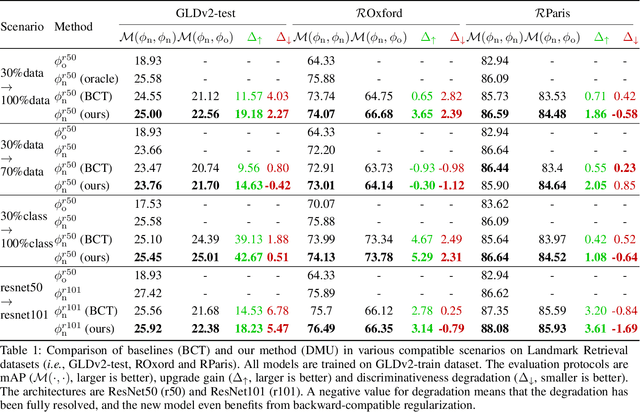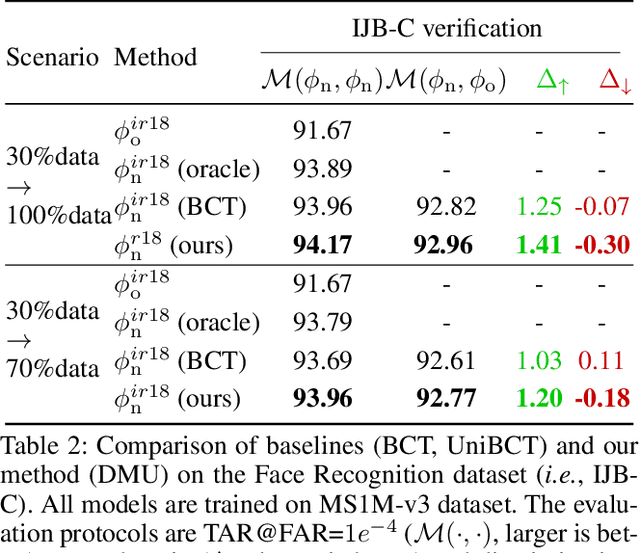Darwinian Model Upgrades: Model Evolving with Selective Compatibility
Paper and Code
Oct 13, 2022



The traditional model upgrading paradigm for retrieval requires recomputing all gallery embeddings before deploying the new model (dubbed as "backfilling"), which is quite expensive and time-consuming considering billions of instances in industrial applications. BCT presents the first step towards backward-compatible model upgrades to get rid of backfilling. It is workable but leaves the new model in a dilemma between new feature discriminativeness and new-to-old compatibility due to the undifferentiated compatibility constraints. In this work, we propose Darwinian Model Upgrades (DMU), which disentangle the inheritance and variation in the model evolving with selective backward compatibility and forward adaptation, respectively. The old-to-new heritable knowledge is measured by old feature discriminativeness, and the gallery features, especially those of poor quality, are evolved in a lightweight manner to become more adaptive in the new latent space. We demonstrate the superiority of DMU through comprehensive experiments on large-scale landmark retrieval and face recognition benchmarks. DMU effectively alleviates the new-to-new degradation and improves new-to-old compatibility, rendering a more proper model upgrading paradigm in large-scale retrieval systems.
 Add to Chrome
Add to Chrome Add to Firefox
Add to Firefox Add to Edge
Add to Edge